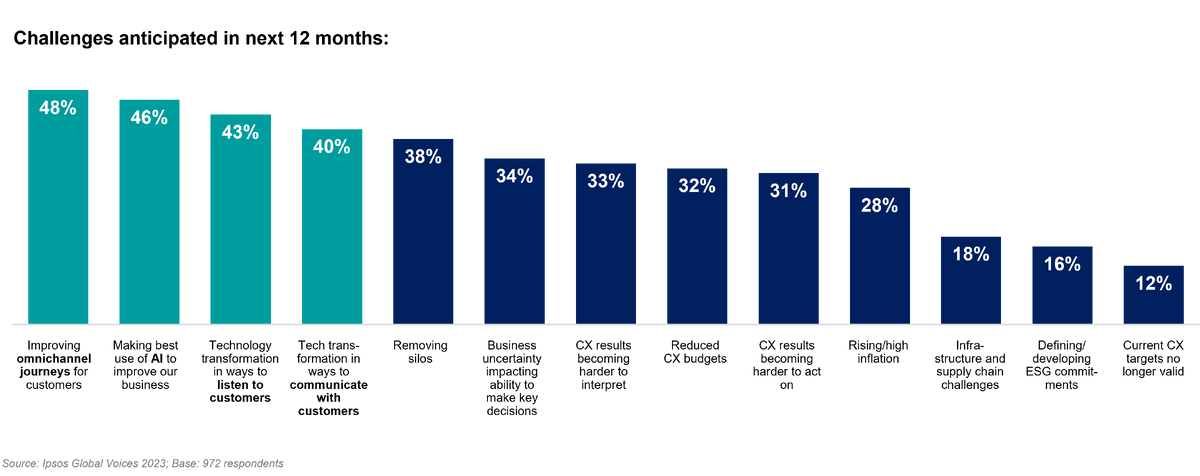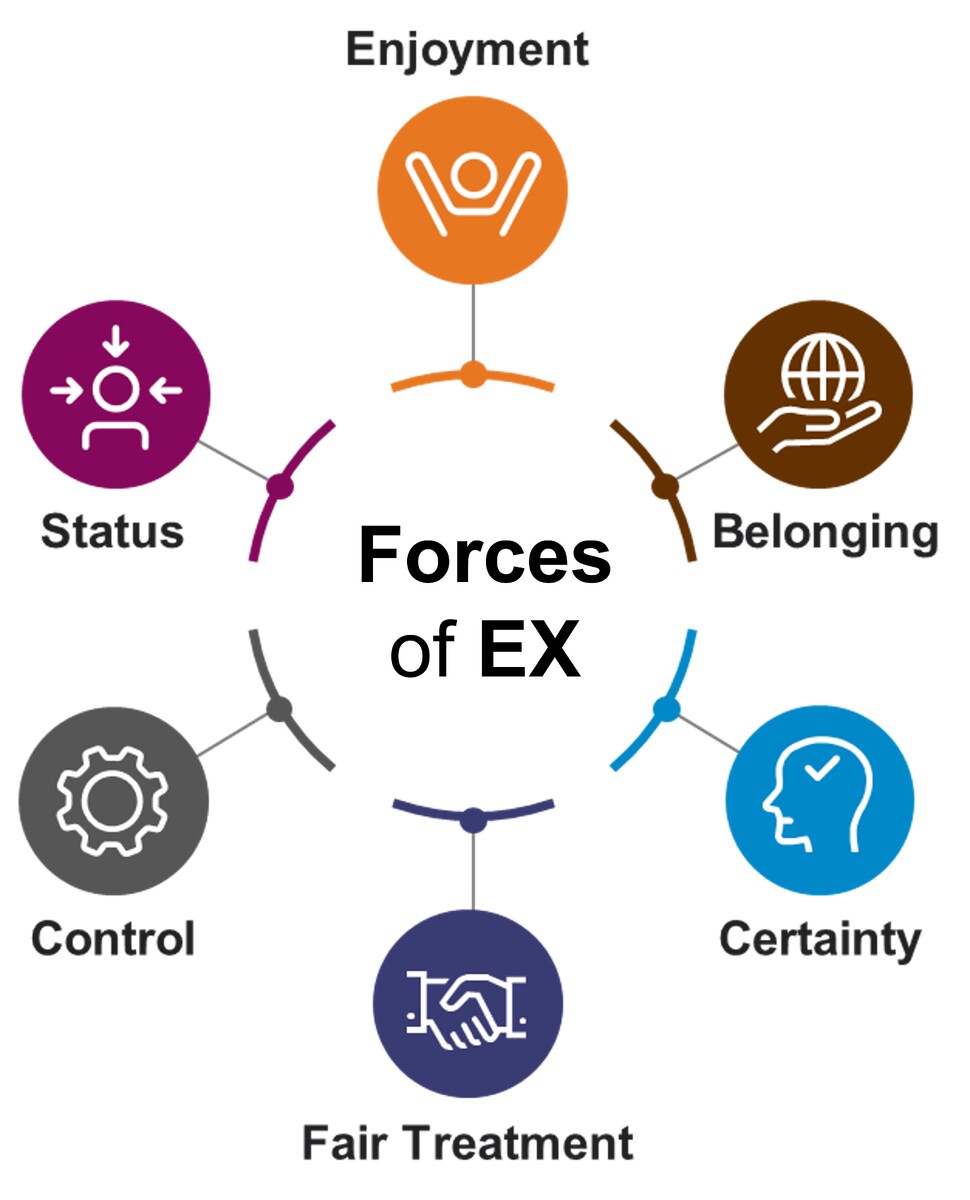Maximizing the potential of AI in the workplace


- Data analysis: Extracting insights from large datasets, ranging from sentiment analysis to predicting future customer behaviors.
- Customer experience personalization: Tailoring customer interactions based on their behaviors, preferences, and purchase history.
- Virtual assistance: Providing real-time assistance to customers through chatbots or virtual assistants.
- Supporting employees: Enhancing efficiency and productivity in problem-solving and training processes.
While employers are intrigued by the potential of AI to automate tasks and stimulate creative solutions, many employees express concerns about the technology potentially replacing their roles. Therefore, companies must invest in communication, education and fostering a positive organizational culture to help employees perceive AI as an opportunity rather than a threat.
So, how can companies prepare their organizations for AI adoption while ensuring that employees feel like integral parts of the technological evolution rather than potential casualties? Ipsos offers guidance through the GET.AI framework:
1 Ground: It’s crucial for organizations to gauge their employees’ readiness to adopt AI. This involves assessing not only functional aspects, such as perceived enablers or barriers and their views on how customers will experience AI in the brand journey but also emotional factors, such as excitement or hesitation. Clear definitions of AI, encompassing its various forms and use cases, are essential to bridge knowledge gaps and foster acceptance among employees.

2 Evaluate: After understanding the potential and readiness for AI adoption, organisations must identify and prioritise relevant use-cases. This involves considering both company priorities and employee feedback to focus on use cases that offer both the greatest value for the company and a positive impact on work and career opportunities. Insights gathered from the ground phase guide the development and implementation of use-cases, ensuring alignment with employee perspectives.
How Ipsos can help with evaluation: Ipsos assists organisations in developing a pragmatic roadmap for AI adoption, leveraging internal and/or end-customer research to identify actionable insights on where AI can best serve the organisation.
3 Translate: Create user-friendly tools and processes. Once prioritised use-cases are identified, these should be translated into specific process workflows involving all stakeholders, including day-to-day users and support functions. This phase may incorporate elements of service design and user experience research and design to ensure seamless integration of AI into workflows and enhance the employee experience.
How Ipsos can help with translation: Ipsos conducts co-creation sessions with employees and transformation leaders to translate prioritised use cases into real-life experiences, using a human-centric service sesign approach. By incorporating design thinking principles, Ipsos optimises workflows and interfaces for AI interaction, ensuring employee satisfaction and driving ROI.
4 Adopt: Successful AI adoption requires disciplined change-management focused on communication, education and culture. Design an AI adoption plan that fosters open communication, awareness, education, skill enhancement and a learning culture, ensuring employees feel empowered and engaged throughout the transformation process.
How Ipsos can help with adoption: Ipsos serves as an end-to-end partner in facilitating AI adoption, from building awareness to establishing governance structures and communicating effectively internally and externally.
5 Improve: AI adoption is an ongoing journey that requires continuous improvement to generate benefits for the organisation, employees and customers. Establish feedback loops, track performance metrics and celebrate successes to ensure AI remains core to the employee experience and drives organizational change.
How Ipsos can help with improvements: Ipsos uses advanced analytics and change-management frameworks to identify areas for improvement and set data-driven targets aligned with business outcomes, driving employee engagement and enthusiasm for AI initiatives.
Preparing your workforce to maximise the benefits of AI requires a methodical approach to organisational transformation. By fostering a culture of knowledge-sharing, collaboration and continuous improvement, organisations can ensure AI is perceived as a valuable tool that enhances rather than threatens employees’ roles.
Contact Ipsos to embark on a journey of AI-driven productivity and innovation.
By Eda Cetinok, Chief Client Success Officer, Ipsos


Business Reporter Team
Related Articles
Most Viewed
Winston House, 3rd Floor, Units 306-309, 2-4 Dollis Park, London, N3 1HF
23-29 Hendon Lane, London, N3 1RT
020 8349 4363
© 2025, Lyonsdown Limited. Business Reporter® is a registered trademark of Lyonsdown Ltd. VAT registration number: 830519543





